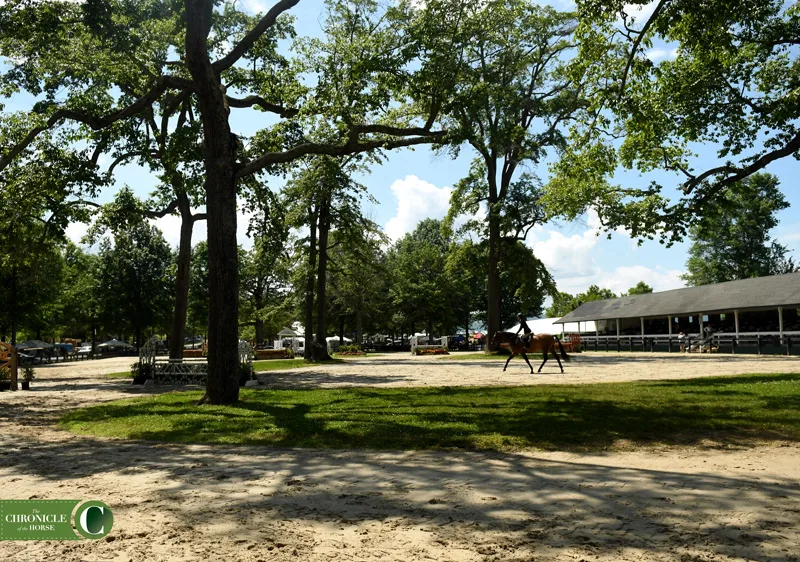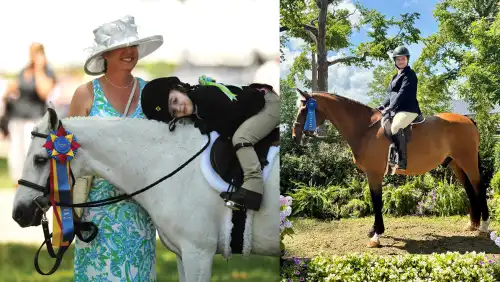I have read with interest all of the attention being paid to the battle between the World Equestrian Center and HITS in Ocala, Florida. It has instigated some important conversations. There has been a lot of frustration pointed at the U.S. Equestrian Federation and the mileage rule. Many folks have decided that USEF is the villain and can’t believe that WEC is being treated so poorly, and, therefore, the mileage rule should be abandoned.
The issues in Ocala are important, but I think the larger issue is the growing consolidation of the horse show operators and what it means for a mileage rule.
The Roberts family built the WEC facility in Ocala knowing that the existing mileage rule would make attaining dates difficult. I assume they believed they could either buy HITS’ Ocala shows or push the USEF around enough to give them dates. Anyone who knows HITS President and CEO Tom Struzzieri knows that he would ask a high price for any deal and would use every pressure point and legal threat to make sure the USEF followed their existing rules. As far as I can tell, the USEF is in an impossible position.
The mileage rule is a blunt instrument in an industry with a diverse set of players. I am involved with high quality but relatively small nonprofit shows like Upperville and the Middleburg Classic in Virginia, shows that are an important but often neglected portion of the industry. There are great one- or two-week shows in this country like Upperville, Chagrin (Ohio), Menlo Circus (California), Blowing Rock (North Carolina), Devon (Pennsylvania), the Hampton Classic (New York), Washington International (D.C.), Pennsylvania National, Lake Placid (New York) and many others that need attention. Using an analogy most of us will understand, the big show series are the equivalent of big-box retailers—think Costco or Walmart—large, efficient and relatively impersonal. The one- and two-week shows are like the local retailers that you love, where you know the shopkeepers, and for whom you cross your fingers that they don’t go out of business.
Large show operators like the Winter Equestrian Festival (Florida) and HITS can use their scale to amortize facility costs over many shows, to create meaningful arrangements with sponsors and vendors, and to drive cost savings with buying power. It is not clear that those advantages are being passed to exhibitors with lower costs or better quality.

Shelby Bonnie says the one- and two-week shows, such as the Upperville Colt & Horse Show (Va.) are “like the local retailers that you love, where you know the shopkeepers, and for whom you cross your fingers that they don’t go out of business.” Laura Lemon Photo
Smaller shows don’t have these advantages. How do you make the numbers work to invest in high-quality footing when the showgrounds are used infrequently or to afford the cost of putting on top FEI classes? They only exist because of the deep generosity of the community and organizers, but as we see with the Palm Beach Masters (Florida) that generosity doesn’t last forever. [The organizers announced in May that they would no longer run the series due to the “ongoing and unforeseen lasting impacts of the COVID-19 global pandemic.”]
Why should you care? Smaller shows are typically run by volunteers who are just trying to put on a good show for exhibitors and the local community. These shows provide a nice change and welcome variety. They aren’t driven by squeezing every last dollar out of exhibitors, but rather making a great experience for riders, horses and spectators. There is something really special about watching a top FEI rider take their child in the leadline or participate in the family class under the historic oaks at Upperville. If the industry is structured to advantage the large operators, over time those shows will become less relevant or go away. If that happens, we will not only lose our heritage, but will also become an industry run by large conglomerates who are more driven by profits and their own prestige than what is right for exhibitors and horses.
ADVERTISEMENT
With respect to the mileage rule, I personally don’t think the mileage rule should be used to protect large operators. We need a mileage rule to protect the smaller shows from the large operators. The larger operators would benefit from a little competition from smaller shows. If someone wants to put on a hunter or jumper show in the Middleburg area that comes up against HITS’ 14th show at Culpeper (Virginia), does HITS deserve the mileage rule’s protection?
I would suggest the USEF play a more nuanced role in managing its application of a mileage rule. There are big differences between HITS shows, Upperville and a B show in Warrenton (Virginia). I believe competition is healthy, but as operators get larger and more powerful, there is an increased likelihood of predatory behavior towards smaller players. Protecting against that would be my focus of a mileage rule.
Additionally, I think it would be appropriate for the USEF and industry to step back and ask themselves what they want in terms of a show ecosystem. All of this controversy is a good chance to look more broadly at what outcomes best support and grow the sport.
I think Karl Cook and Ann Glavan both have brought some good ideas. There is the possibility that USEF could play a more central role in aggregating sponsorships and finding distribution for video products. Efforts like that would help the smaller set of quality shows that simply don’t have the infrastructure to do that on their own. Also for a certain tier of horse shows, they could be more flexible on requirements and fees to drive lower costs for exhibitors.
Like other parts of our economy, consolidation is driven by raw advantages of scale, but as consumers we know it doesn’t always bring better products, better customer support, innovation or a more interesting, varied life. With that, we will watch WEC and HITS duke it out in Ocala, but I hope the USEF puts its focus on creating and supporting diverse alternatives, or they will learn the other problem with consolidation: At some point the consolidators will control the industry and not them.
Shelby Bonnie is a technology executive and splits time between San Francisco and Upperville, Virginia. He travels to horse shows with his daughter, Virginia, and is one of the masters of Piedmont Fox Hounds. He is the son of Ned and Nina Bonnie, who were very involved with the U.S. Equestrian Federation and its predecessor, the American Horse Shows Association. He is the grandson of Mrs. A.C. Randolph, a great and respected horse owner, and Shelby is now the caretaker of her farm, Oakley, which hosts the Middleburg Classic and the jumper portion of the Upperville Colt & Horse Show and Loudoun Benefit. He is the president of the Middleburg Classic, vice president of Upperville and on the board of Loudoun Benefit.














